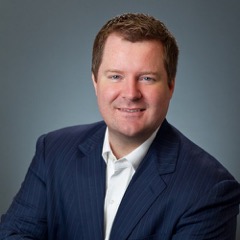What’s coming up? Let’s plunge into the Deeper Waters and find out.
A little over 500 years ago, Martin Luther put up his 95 theses and after that, the world has never been the same. A rift was eventually created unlike any before. The Catholic Church had dealt with opposition, but due to the printing press, this one lasted with the ideas being broadcast far and wide.
In the aftermath, both sides hardly came together and started asking “Why can’t we be friends?” Instead, both sides have been guilty in the past have handling things in a less than Christlike way. Namely, killing each other. Wars would take place with Protestants and Catholics both being on the run.
Today, things are different. Many of us will happily work alongside one another. While for the most part, most of us do see the other side as fellow Christians, there are still areas of disagreement. We can all be benefitted by good discussions about what those disagreements are and how to handle them. Is the Catholic Church the church that Jesus established? Or do the Protestants have it right and the teaching of Scripture is the only infallible authority the church has?
To discuss this, I have a show coming up with a Catholic and a Protestant. Doug Beaumont, a former professor of mine at SES turned Catholic will represent the Catholics. Jefrey Breshears, founder of the Areopagus here in Atlanta will represent the Protestants.
So who are they?
According to his bio:
Douglas Beaumont earned a Ph.D. in theology from North-West University and an M.A. in apologetics from Southern Evangelical Seminary, where he taught for several years before coming into full communion with the Catholic Church. He has since appeared on The Journey Home and Catholic Answers Live, and has been interviewed by The National Catholic Register, EWTN, Relevant Radio, and The Patrick Coffin Show. He is the author of Evangelical Exodus and The Message Behind the Movie, has contributed to Bumper Sticker Catholicism, The Best Catholic Writing, The Apologetics Study Bible for Students, and the Christian Apologetics Journal, and has written online articles for Catholic Answers Magazine, Strange Notions, and Catholic World Report. He can be found online at douglasbeaumont.com.
And for Jefrey Breshears
According to his bio:
I received my Ph.D. in history from Georgia State University, specializing in two fields: (1) Ancient history, philosophy and religion; and (2) modern United States history. I also taught for 15 years at Georgia State and Kennesaw State University, and also at Atlanta Christian College and Reformed Theological Seminary, during which time I taught courses in ancient and medieval history, early and modern U.S. history, and political history. I also developed a course entitled “American History Off the Record: Social and Political Themes in Popular Music from World War I Through the 1970s.” In 2003 I founded the Areopagus, a Christian education organization in the Atlanta area that offers semester-length seminar courses and forums on topics related to Christian history, apologetics, contemplative Christian spirituality, literature and the arts, and contemporary cultural issues.
Having done some recent research on this topic, I am looking forward to having two people who have studied this more than I have come on and discuss the matter. I also hope this discussion will produce more light than heat. Be watching for the next episode and please consider leaving a positive review of the Deeper Waters Podcast.
In Christ,
Nick Peters










